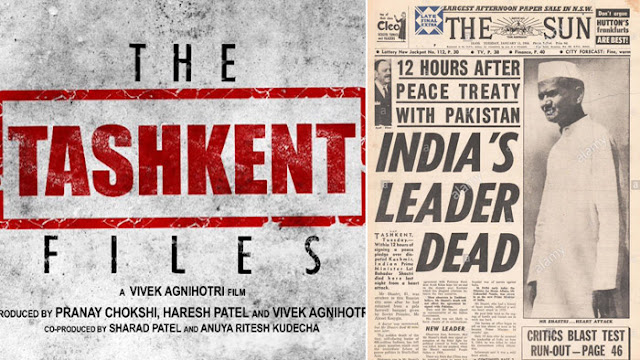Gully Boy - From the lens of Marx
The Ranveer Singh and Alia Bhatt-starrer 'Gully Boy' has been declared as India's official entry in the 'Best International Feature Film' category for the 92nd Academy Awards.
The Culcutta Times tweeted on September 19 that the Film Federation of India jury had decided to send the Zoya Akhtar-directorial for Oscars. Gully boy that will represent India at the Oscars depicts the contrast between the haves and have-nots with its artistic stature.
While low pay and wage inequality remain a
serious challenge to India’s path to achieving decent working conditions and
inclusive growth, the movie paramountly addresses the issue of elevating rise of wage gap and the exploitation of working labour class in India.
'Azadi, bhukhmari se Azadi..
Haan pakshvaad se Azadi..
Haan bhedbhav se Azadi'
(Demanding freedom from poverty, hunger and discrimination on the basis of caste and religion)
Working class (proletariat) protagonist Murad Sheikh persists despite the odds being stalked against him. It spotlights class disaffection ostensibly and slum rage. Gully boy tempers down the melodrama. It's concerns are squarely in the millennial 'follow your passion.'
While his opponent - a wealthy snob in a rap battle insults him for being a servant of the system and for wearing untidy clothes, Murad replies
'kapde silaye maine khud ke dum pe, nahi liye maine apne baap se' (I got these clothes stiched with my own subsistence, didn't ask for these from my father) pointing towards the lives of kids born and brought up with capitalist luxuries who look down at the lesser privileged section of society. Murad's anger is constantly muted, less an outpouring of volcanic fury than a carefully edited set of verses even during spontaneous rap battles
One of the most fascinating scenes in the movie is when Murad accompanies sky (a free spirited woman played by Kalki kochlin) and her friends as they drive around the town in a Mercedes defacing billboards. They spray paint 'Nature was here' on a fence around a new property development. 'Feed me' next to a mouth of slender model. And 'Brown and beautiful' on a fair&lovely ad poster. Kalki kochlin is portrayed as a shallow anti-capitalist posturing as a liberal elite. But also as a white woman who takes interest in Murad who belongs to a poor socio-economic background. Class reconciliation isn't a fairy tale. It seems ardently possible in the world of street rap.
The barriers to Murad's success barely seem to be structural. The people who stand in his way at various points are his father, a boss and a bouncer outside a club who wordlessly signals him to leave for the class he belongs and the way he carries himself. All these instances have much to do with his class. Murad's father gets furious over him practising street rap and reminds him that being the son of a driver, he shall drive car when his father falls ill, asks him to not dream high and restrict himself in the helpless cocoon.
This is a movie that in it's quest of appealing to urban and diasporic audiences, has reduced the decibel level of its protagonists voice from a roar to a whimper. It's only in rap battle that Murad is truly able to channel his righteous anger, his frustration against the system that disempowers minority.
With Murad's dream of chasing individual liberty and freeing himself from the community shackles, the movie doesn't see the inhabitants of Dharavi as ciphers.
Another is the moment which depicts the denizens of Mumbai. When Murad works as a driver for a lady from the bourgeoisie upper class, drives the car and the lady seated in the back seat has bursted into tears. Murad willing to, yet stops himself from asking the reason behind her sorrows because he having a lower status, shouldn't be daring to console his 'madam'. I was quivered while the lines played in the background, written by Javed Akhtar go as:
'Kehne ko hum paas hai lekin socho kitni doori hai,
Ye bhi kaisi majboori hai,
Tumse humdardi bhi nahi Kar sakta, mere bas ki baat nahi,
Me ye behte aansoon pohchu itni Meri aukaat nahi'
(We seem to be so near, sitting in the same car, yet we are so far because I am a driver and you are my boss and hence I shouldn't have the audacity to ask you the reason behind your sadness)
Murad fights off his poverty and social disadvantage to realise his dream of being a rapper. It chronicles the story of an ordinary boy Murad from Dharavi who dreams big and refuses to let adversity squash his spirit. His journey from being a quintessential slumdog to being an ambitious rapper named Gully Boy is exhilarating and disturbing. Gully boy is a tale of Marx and Mumbai.







Best article ever!
ReplyDeleteGully Boy is a very nice movie, it is appreciated that such movies exist even today in India. It is a very motivational and very good movie. More movies like this should be made.Websites like Gully Boy Torrent Magnet should stop selling this movie for free.
ReplyDelete